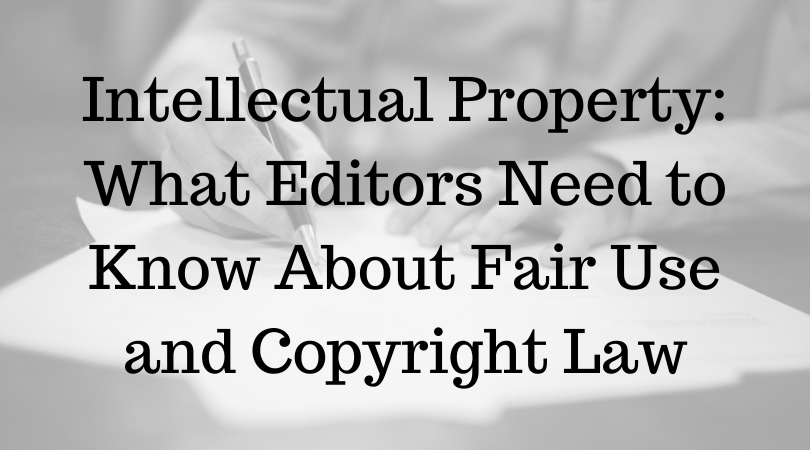Georgia Chapter Professional Education Series Presents Attorney Jason Aquilino: What Editors Need to Know about Fair Use and Copyright Law

Jason Aquilino, an attorney specializing in intellectual property law and principal attorney with Aquilino Law, wrapped up EFA Georgia’s 2019 professional education series with his “primer” on the complex topic of fair use and copyright law with specific guidelines for editors. Aquilino’s complete presentation is available on Skype for a limited time. Please contact the Georgia chapter for access.
In addition to his presentation, Aquilino provided the following five tips on how editors can avoid legal trouble, especially regarding copyright infringements; however, he urges editors to keep in mind the old adage “better safe than sorry” may be the best tip:
- Don’t be on the hook if the author violates another’s rights. For this list, I won’t necessarily save the best for last. The most important thing you can do is have a good service agreement that protects you against third party claims arising from illegal acts of the author. A good contract can have several clauses that will help you in this regard. First, you want the contract to be very clear about what your role as the editor will be. Second, you want to disclaim responsibility and liability for anything outside the scope of your duties, and especially for anything originating from the author that may violate a third party’s rights. Third, you may even want the client to expressly acknowledge that you are not expected to catch third party rights violations and to release you from asserting any claims arising out of such matters. Fourth, you want the author to represent and warrant that nothing in the project violates a third party’s rights. Finally, you want the author to indemnify and hold you harmless against any third party claims arising from any breach of the author’s representations and warranties.
- Don’t be the one to introduce infringing elements into the project. You should expect the author to want some quid pro quo on those clauses in Tip #1. Specifically, the author may want mutual clauses that ensure you won’t be the one to introduce anything harmful into the project. The best way to do this is to only introduce your own edits to what the author has created. Avoid making rewrites that are “inspired” by your reference to an existing published or unpublished piece. If you are editing negative information about a real person, tread carefully––you may be turning a non-libelous statement into a libelous one.
- Limit your liability. If you follow the tips above, you should be fairly safe. But what happens in the off chance that the client chooses to sue you for something anyway? You are only getting paid so much for your services, and you don’t want to be acting as an insurance policy for the author. The best way to limit your liability is to add a “Limitation of Liability” clause into your service agreement that expressly limits your financial liability under the agreement only to the amount actually paid to you by the client.
- Watch out for your client’s interests the smart way. Even if you have disclaimed responsibility for identifying potential legal violations in a project, that doesn’t mean you have to turn a blind eye to them. In fact, a good editor will want to bring as much value to the project as possible. If you spot something that you believe might be problematic, let the client know that you have identified it as a potential issue. For example, if you see language that looks substantially similar to something you have seen elsewhere, or if something feels like it might be defamatory, then flag it for the client to consider. This leads directly into the last tip.
- Don’t try to be a lawyer, but know when to recommend one. Once you identify a potential legal issue, let your client know that you are only flagging it as a potential problem for their further investigation. Remind them that you are not an attorney, then recommend they seek legal counsel if they are not 100% certain how to resolve the issue on their own. Even if you feel certain that you know the answer––for example, you feel strongly that use of another’s copyrighted material may be fair use––the best approach is to not be the person your client ultimately listened to when legal liability comes knocking later. If your advice to the client is conservative––such as recommending to remove something or to seek permission from a potential third party rights holder, you may be better off. However, even in that situation, there is a risk that you could tell your client to do something that he or she did not have to do, and they later resent you for it.
Disclaimer: These tips are for informational purposes only and not for the purpose of providing legal advice. You should contact your attorney to obtain advice with respect to any particular issue or problem. I do not represent you and therefore cannot provide you with legal advice unless you retain me as your attorney.
Mari Ann Stefanelli, EFA Georgia Co-coordinator

